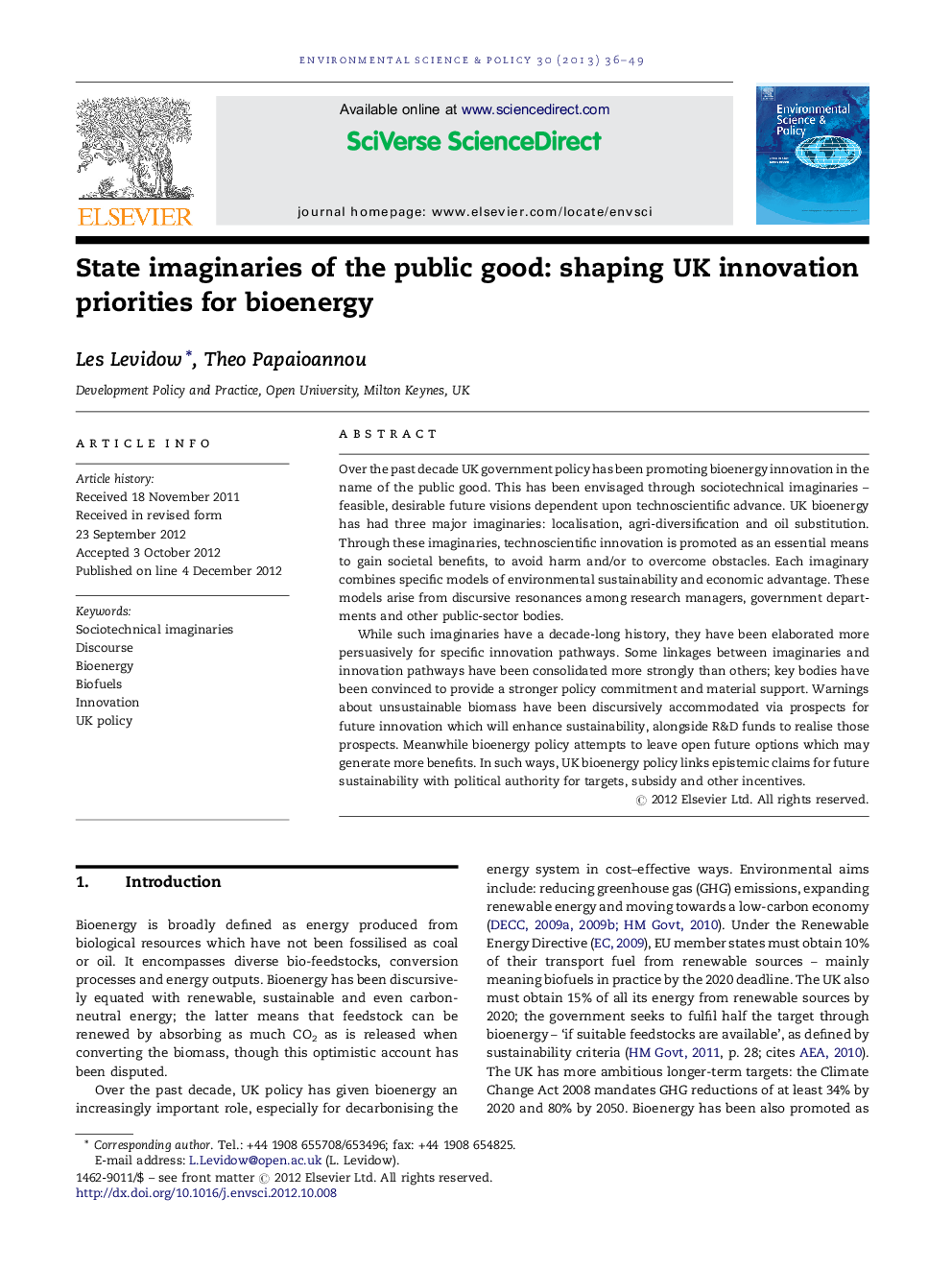| Article ID | Journal | Published Year | Pages | File Type |
|---|---|---|---|---|
| 1053697 | Environmental Science & Policy | 2013 | 14 Pages |
Over the past decade UK government policy has been promoting bioenergy innovation in the name of the public good. This has been envisaged through sociotechnical imaginaries – feasible, desirable future visions dependent upon technoscientific advance. UK bioenergy has had three major imaginaries: localisation, agri-diversification and oil substitution. Through these imaginaries, technoscientific innovation is promoted as an essential means to gain societal benefits, to avoid harm and/or to overcome obstacles. Each imaginary combines specific models of environmental sustainability and economic advantage. These models arise from discursive resonances among research managers, government departments and other public-sector bodies.While such imaginaries have a decade-long history, they have been elaborated more persuasively for specific innovation pathways. Some linkages between imaginaries and innovation pathways have been consolidated more strongly than others; key bodies have been convinced to provide a stronger policy commitment and material support. Warnings about unsustainable biomass have been discursively accommodated via prospects for future innovation which will enhance sustainability, alongside R&D funds to realise those prospects. Meanwhile bioenergy policy attempts to leave open future options which may generate more benefits. In such ways, UK bioenergy policy links epistemic claims for future sustainability with political authority for targets, subsidy and other incentives.
► The UK government has envisaged bioenergy innovation through sociotechnical imaginaries. ► There are three major imaginaries: localisation, agri-diversification and oil substitution. ► These have been elaborated more persuasively for specific innovation pathways. ► Some linkages have been consolidated more strongly than others. ► As discourses of the public good, sociotechnical imaginaries have informed innovation priorities.
